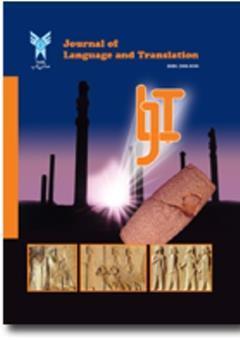A Gender and Attitude-Based Study on the Washback Effects of Tradi-tional and Task-Based Assessments in Developing Reading Skills
محورهای موضوعی :Mojtaba Aghajani 1 , Hamid Reza Khalaji 2 , abbas bayat 3
1 - Candidate in TEFL, English Language Department, Islamic Azad University, Malayer Branch, Malayer, Iran
2 - Assistant Professor in TEFL, English Language Department, Islamic Azad University, Malayer Branch, Malayer, Iran
3 - Assistant Professor in TEFL, English Language Department, Islamic Azad University, Malayer Branch, Malayer, Iran
کلید واژه:
چکیده مقاله :
The objectives of this mixed-method study are to study washback effect of task-based language assessment on developing reading skill and also students` attitude towards TBLA. 108 EFL learners participated in the study were randomly chosen and were allocated into two classes of 54. The two groups took a reading class which carried out 90 minutes per week and continued for 3 months. By administering the PET, the homogeneity of two groups was approved. Both groups received similar instruction over 24 sessions, but only participants in experimental class took the researcher-designed task-based reading quizzes each four sessions. Next, both groups were given a reading post-test after the treatment, Results showed that TBLA has a positive im-pact of washback on reading improvement among EFL students. Furthermore, the attitude of learners about TBLA was calculated by employing an “Attitude Questionnaires on Reading”. To analyze the data received from “Attitude Questionnaire” A paired-sample t-test was run. By analyzing the results of quantitative questionnaire, it is revealed that learners commonly have a tendency to the application of TBLA in learning and teaching reading skill. Results of the re-search show that TBLA need to be replaced by traditional assessment procedures since all educational planning always attempts to take full advantage of educational achievements and also improvements.
The objectives of this mixed-method study are to study washback effect of task-based language assessment on developing reading skill and also students` attitude towards TBLA. 108 EFL learners participated in the study were randomly chosen and were allocated into two classes of 54. The two groups took a reading class which carried out 90 minutes per week and continued for 3 months. By administering the PET, the homogeneity of two groups was approved. Both groups received similar instruction over 24 sessions, but only participants in experimental class took the researcher-designed task-based reading quizzes each four sessions. Next, both groups were given a reading post-test after the treatment, Results showed that TBLA has a positive im-pact of washback on reading improvement among EFL students. Furthermore, the attitude of learners about TBLA was calculated by employing an “Attitude Questionnaires on Reading”. To analyze the data received from “Attitude Questionnaire” A paired-sample t-test was run. By analyzing the results of quantitative questionnaire, it is revealed that learners commonly have a tendency to the application of TBLA in learning and teaching reading skill. Results of the re-search show that TBLA need to be replaced by traditional assessment procedures since all educational planning always attempts to take full advantage of educational achievements and also improvements.


